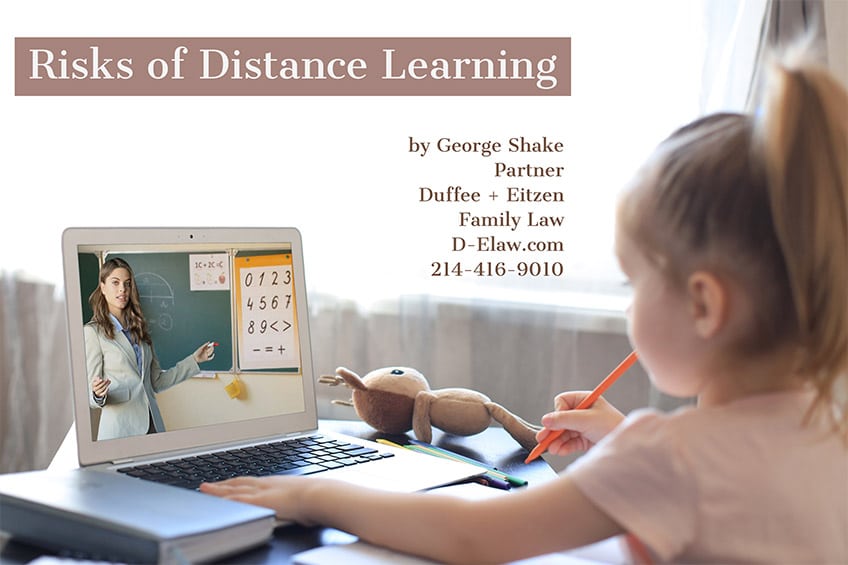Risks of Distance Learning

- Written by Duffee + Eitzen Administrator
- Categorised George Shake, Education
Risks of Distance Learning, by George Shake
Parents and schools have been making preparations for children to attend school through distance learning. One aspect of that preparation is making sure children have the necessary technology that they need. Laptops and tablets can be wonderful tools for education. They allow students to videoconference with their teachers and classmates. These devices allow students to access their textbooks online. There are also countless amazing educational games and websites. However, there are many real risks to a student’s safety when using these devices, no matter their age. These risks include exposure to a lot of unwarranted and in appropriate ads. These risks also include a child purchasing items without a parent’s permission. Children can also access inappropriate videogames, websites, music and worse. The greatest concern for most parents is the knowledge that there are predators online that know the types of internet sites and games in which to find children and how to engage them in conversation. Unfortunately, it is not difficult to find a news story in which a child provided an unknown adult online that child’s name, photos, age, phone number, and even home address. The good news is that parents have gotten much more vigilant about protecting their children online over the past several years. Now is a great time to educate ourselves on all of the settings on the devices are children are using. Most devices allow for quite robust parental control. There are also numerous affordable “nanny” apps and programs through cell phone providers, device manufacturers and third party companies. Something to keep in mind is that if your child’s device is provided by the school, you may not have the ability to change settings or install software. If this is the case with your child, it is highly recommended that you contact your school and investigate what protections are in place for your child.
George Shake, a partner with Duffee + Eitzen, L.L.P., has been practicing law in the Dallas/Fort Worth area since graduating from the Southern Methodist University Dedman School of Law. He practices family law and special education law. George received undergraduate degrees in English Literature and Business from the City University of New York. George received a Master’s degree in School Psychology from the University of North Texas and became licensed to practice school psychology.
He worked with families directly for several years, assessing children and helping parents and schools to create educational programs for those children. George developed specialties in ADHD and Autism and has participated in countless special education meetings, discipline meetings, and teacher conferences. He has held administrative positions in several local public schools. He has written policies and trained school personnel to comply with federal and state regulations for serving children with special needs.George has been working on behalf of individuals with disabilities for twenty-five years and training professionals throughout the Dallas area for fifteen years. George’s work in family law often involves families with children with disabilities.


Contact Us